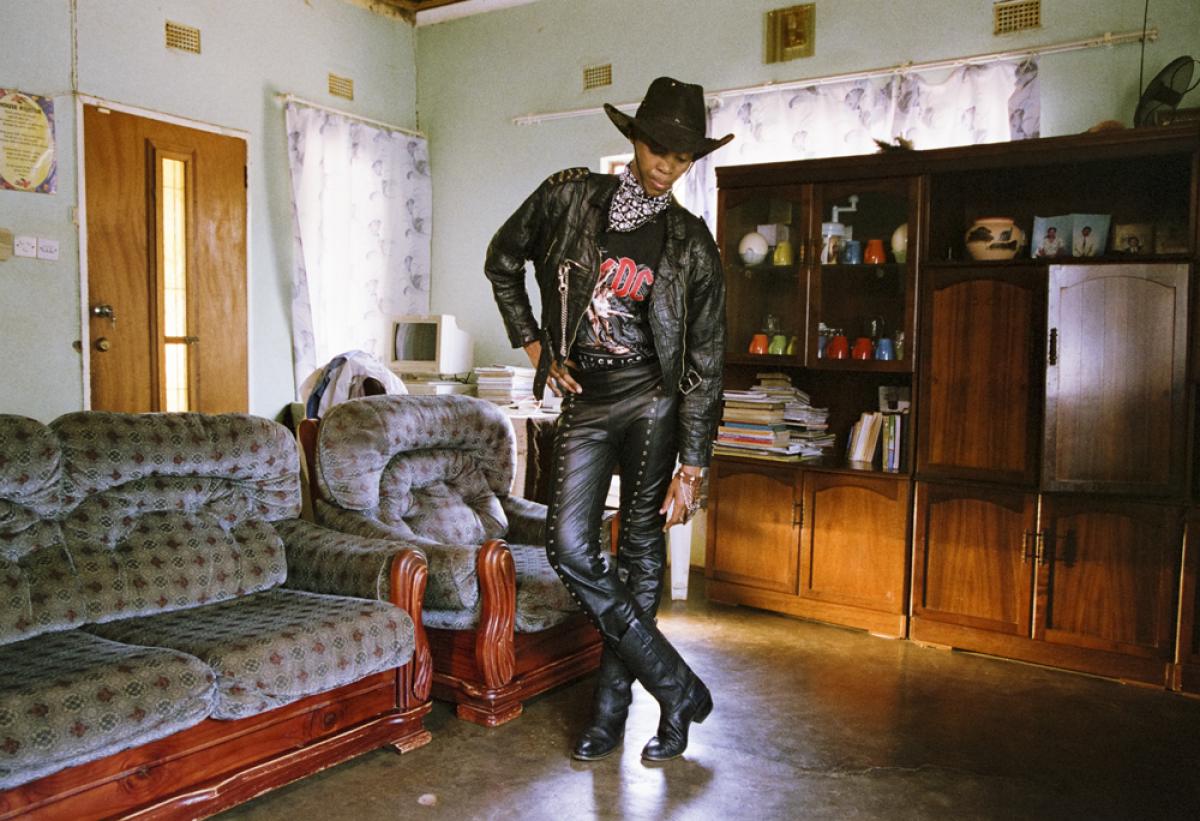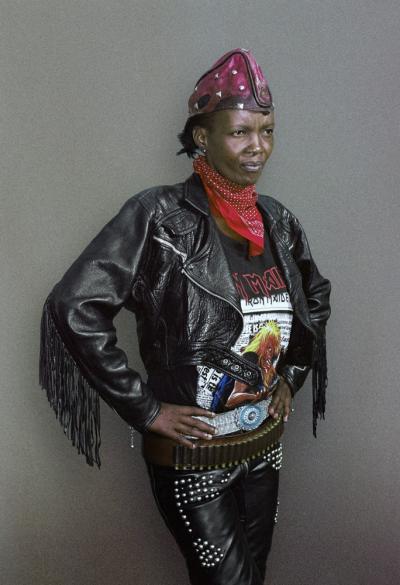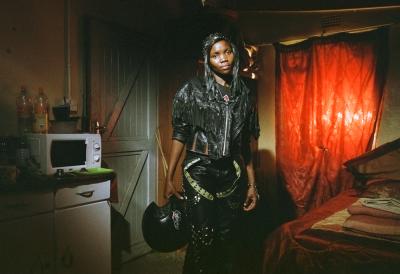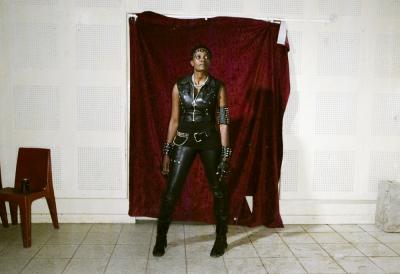Despite being one of the first female Iranian rappers, Salome MC has no interest in perpetuating the current state of the music business. To her, it is about letting the music speak for itself. A portrait on one of the artists who collaborated on the first season of 1+1, a worldwide recording project by Norient and Sound Development in Summer 2015. Together with Japanese-American rapper Shing02 she produced the Track «Passenger». For more material (tracks, videos, articles, photos) on 1+1 check the project website here.
Certain careers make it impossible to escape the public eye, like being an actor, singer or rapper, for example. These are jobs as much as they are lifestyles, where a truly conventional life is forever out of reach and scrutiny awaits your every decision. This is how rapper Salome MC views fame, and no wonder she does as one of the first female Iranian rappers.
You wouldn’t know it by looking at her, though, since she is void of a sense of superiority that most rappers feel entitled to after a certain point in their careers. In terms of first impressions, Salome MC comes off as a gentle person. When I met her she spoke softly and took a minute to warm up to me in interviews, but once she did, I caught a glimpse of the ferocity crouching within her at all times.
Video not available anymore.
Imagine my surprise, then, when I saw her music videos after being introduced. Salome MC raps intensely, she glares into the camera in a manner that let’s you know that what she’s saying is worth listening to, even if you don’t understand Persian. Now that I’m acquainted with Salome, I’m embarrassed to say that I didn’t know anything about her music before this project. Since I don’t speak Persian, it’s difficult for me to become a fan of her music, and unlikely that I’d be exposed to it in the U.S. without searching for it. But I have become a fan of her as a person, which I later found out could be considered a coveted rarity since she likes to remain low-key.
As of right now, I have no desire to obtain the conventional. I’m a 21-year-old college senior trying to assemble some image of what I want my life to be and the only thing I know for sure is that I don’t want anything traditional. Part of the problem is that conventional equates to routine and conservative, both of which go against my grain. I know that I personally would struggle to figure out a way to still feel excited about life if I had to live within those confines. When I discuss it with friends it seems like I’m one of the only people who craves another option, even if I have no idea what that would be. So recently I’ve taken to looking at the lives of others to get an idea of what could be possible for an adult in this century. Salome is one of those people.
Learning about Salome as a person has been one of the most interesting aspects of participating in this project. Part of that is because, in a way, she wants what I don’t. She goes to lengths to protect her normalcy in regards to her husband, and family. She designed her website so that it doesn’t have personal info, choosing instead to have it focus only on her music.
21st Century Salome MC
I can tell you that she lives in, Japan, where she graduated with a Master’s in Video Art. Her husband works for a private space company in Japan and she works as a video editor. Since this is 2015, she does have a Facebook but it’s under her real name, not Salome MC, which means her profile is only for those who know her personally.
When we were in the studio in Hawaii, Salome giggled as she turned her laptop to me to show numerous posts from her friends who don’t know about her music career. They were shocked and confused to see photos of her in Hawaii. They gawked, questioning if she was on vacation.
I laughed, too, because in a way it really is funny the way Salome has managed to compartmentalize her life despite how social media has taken over. She even has a blue checkmark on her Instagram profile, an indicator reserved for people who are famous. I have no idea how she explains that away to her friends. Or maybe they don’t even follow her on Instagram, since hers is a gallery of snapshots of things around her accompanied by brief, sometimes cryptic captions.
This sets hers apart from most profiles, where selfies are everywhere and boasting about something cool you’re doing is the norm. On her social media she didn’t mention much about this project, even though the experience was unique for her not just because it was her first time in Hawaii, but because Norient and Sound Development chose her as the first participant of their 1+1 project. As the first participant, Salome MC chose to work with multilingual Japanese rapper, director and producer Shingo Annen, known as Shing02.
Attention to Detail
The notion of collaboration is something that took some getting used to again for Salome MC with this project, although she is not foreign to collaboration itself. As is the case for most rappers, much of her early career consisted of working with friends who knew more about certain aspects of making music, like producing a track, than she did.
Now she has learned almost every aspect of producing music so that she can do it herself in her apartment, giving her ultimate control of the process. Watching Salome work on music reminds me of watching a surgeon perform open-heart surgery. Granted, I’ve only ever seen it on TV so I could be way off here, but the level of concentration she affords is what I imagine is on par. When she was composing the instrumentals for «Passenger» (listen to the track here), she was all but hugging her laptop, engrossed in indulging the perfectionist side of her. She had these huge headphones on and was quiet save for when she’d consult Shing02 for his input.
Then when we were at Blue Planet Studios finalizing the track, there she was again with a hawk eye on everything. There was one clip of the song that she, Shing02 and Jules Washington, a producer and sound engineer who mastered the track, played repeatedly to make sure everything was cohesive. It was approaching lunchtime and many of us already finished whatever snacks we brought to curb our hunger. They were just about to move on to master the next part of the song before lunch, but Salome stopped them. «Can you play that back just one more time?» burst Salome as if she were annoyed, making it clear that she felt something was off but couldn’t quite place what it was.
She figured out that the faint background instrumentals were off-beat with the main vocals. I did not notice this at all, but when Washington zoomed in on the different sound threads, we could see that it was indeed off-beat and definitely needed to be fixed. Her acute ear was utilized again and again during the couple of days we spent holed up in the studio.
No Interest in the Limelight
Salome mentioned how at home she hardly ever gets to spend more than a couple hours at a time on making music, so it was interesting to see how effective she is at focusing all of her attention on making a track. She usually works on her music whenever she gets the chance, which is mostly at night after she gets home from work.
«It’s like having a day and night life and I really like that», she said. «To them, I am a video editor. I don’t tell anyone (about my being a music artist) unless I’m meeting people because of music.»
This was alarming to hear, since most people who have a music career advertise themselves to whoever will listen. Her reserved perspective on fame could originate from the fact that she grew up with parents who were often in positions dealing with the public. Her father was a journalist and her mother a pioneer feminist writer and professor.
«My mom was a public person. I didn’t like the fact that a lot of the things she did, she always had to consider how it reflected on the public … I didn’t like the pressure that it put on me and my sister to act a certain way … that’s part of why I chose a completely different stage name», explained Salome MC, whose real name cannot be found on either Wikipedia or her own website. The only reason why I know it is because I happened to be sitting next to her when she logged into her laptop, which had her name displayed under the icon. I would have never asked otherwise, knowing how much she values her privacy.
«Even at the point that I am now, I kind of want to hide away, but it’s really hard. Eventually people start to listen to you and pay attention to you … Some people can handle it and that’s great. It’s worth it to reach out to a lot of people. I guess I’m too private and I don’t want to sacrifice that … The thing is, it’s not only creating (music), you have to do so many other things. The business side of it, you have to do all this PR, you have to have connections, and that’s too much for me. I feel like it’s not really worth it», she said.
Despite her comfort in staying out of the limelight, Salome still faces pressure from her fans who feel that her underground status does not do her enough justice.
«People tell me, you’re the first Iranian female rapper, I can’t believe, this is not where you should be, you should be up top there. The fans get really mad at me for not putting myself more out there, but I’m content … I keep telling my fans, if you want me to reach to more people, just give my music to your friends, it’s okay, it can get distributed like that and I’m fine with it», she said.
This is how Salome MC got started in the first place. She began her career in Iran during the early 2000’s, when the Internet was basically nonexistent to Iranians due to such strong government regulations. Something as simple as streaming videos on YouTube took much longer than in the U.S., so the easiest way to share music would be hand-to-hand or by word of mouth.
No Gender Roles or Labels
When I asked her about the difficulties of coming up as a female rapper in Iran and in general, she seemed disinterested in fleshing out her answer. People ask her about it often, and the truth is she hasn’t had issues with the Iranian rap community taking her seriously. I loved that she was bored with this question, because that’s how it should be. Gender should not be considered an obstacle.
Another thing that comes up often is the fact that people tend to brand her as a political rapper, and therefore consider her to be on the offensive. She addresses this in the track «Passenger», with the lines:
They say I am on the offensive, but I’d say I’ve been a defender
Ever since the day I developed a resistance to mis- information;
That shit’s incompatible with my eco-system, and my antibodies reveal the bullshit so I can heal
«I am as political as anyone should be. Anyone should be angry when media is feeding bullshit to them, politicians are lying to push their agenda and wars for money and power are happening, sugar-coated with ideals like freedom and independence. So I am just defending against the bullshit that is being fed to me, and exposing the bullshit is the only way I can heal from the harm that the bullshit caused me», she explained.
Classifying Salome as a political rapper when really she could be considered as someone who is just more aware than most of current issues and has decided to respond to them means holding a mirror to our own level of awareness of what’s happening in our countries. Her explanation opened my perception at least, and has pushed me to make a conscious effort to read up on current events more consistently.
«When I say I am not very political, or I am not an activist, I am not saying that to mean as if I don’t want to be or I don’t feel like being one. It is just I have so many friends who are true activists and true political revolutionaries who go in and out of jail, protest, devote their life to their cause. How can I say I am an activist when all I do is make a song when something happening on a socio-political level bothers the shit out of me?» she said.
Music has the ability to reach audiences that sometimes protests cannot, so there is value in making a song about current issues. However, I see her point and this is the perfect example of how ego is of little importance to Salome. Her attraction to rapping has nothing to do with wanting fame and everything to do with her sense of responsibility to make statements that will resonate with people.
In the week I spent getting to know Salome as she worked on this project, she intrigued and impressed me in so many ways. I’m amazed at how much she decided to trust me. Me, a total stranger who was there to do the one thing she doesn’t want, which was to observe her and give her attention (through this very article). She allowed me a glimpse inside of her personal life and while I’m still firm on my beliefs, Salome showed me that choosing one lifestyle does not mean sacrificing another. There is wiggle room between conventional and liberal. It is possible to pick and choose what you want out of the two if you so desire.
Salome is a different creature from most women, or at least most that I’ve met. In part because she has chosen to have two careers simultaneously and tries to keep them mutually exclusive while somehow keeping them cohesive. Beyond that, though, she has a duality to her that spans across everything she does. It’s not that she is unable to handle the limelight, it’s that she is selective with how she wields her fame. She’s not shy, she’s waiting for the right moment to speak. She has a soft heart, but not a dormant one. It stirs inside of her like a quiet storm, and only she decides when to let it out.















